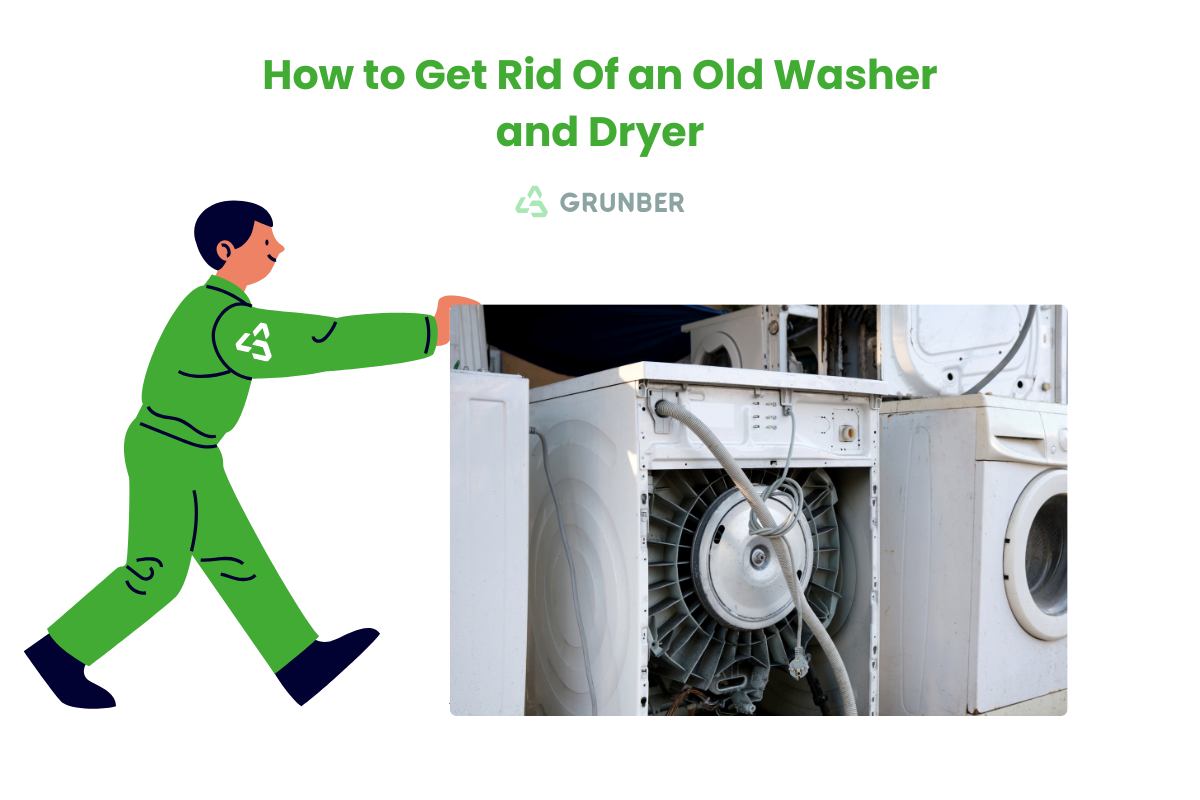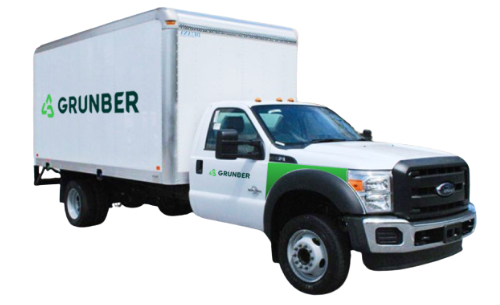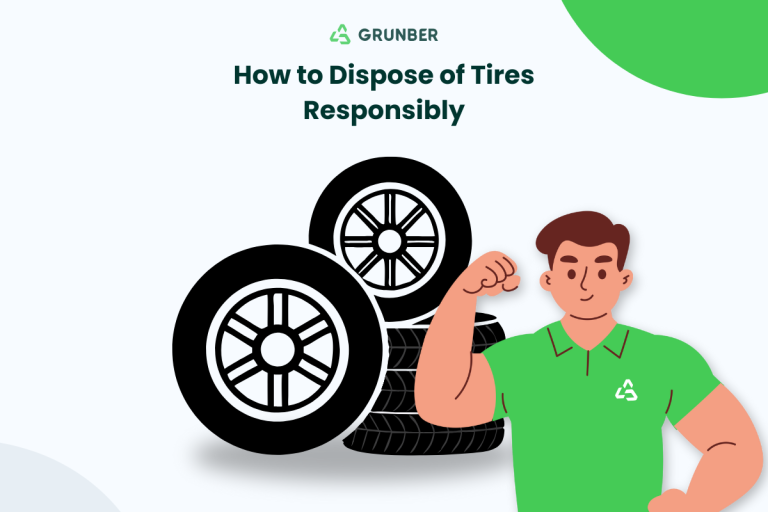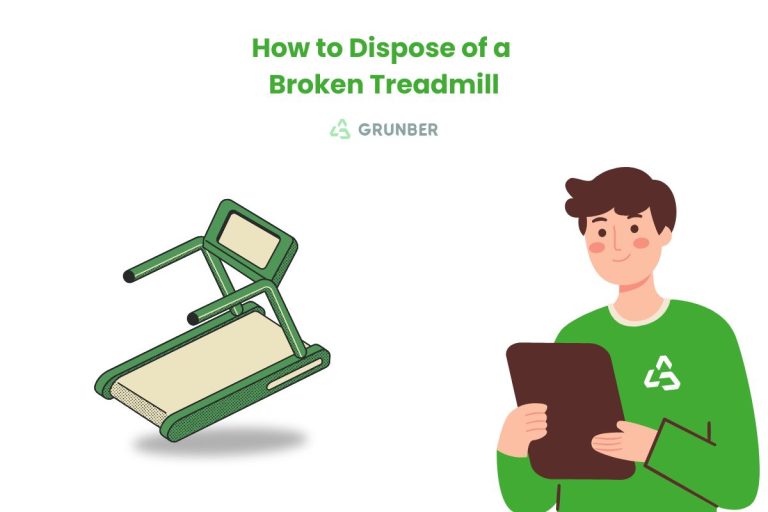When it’s time to upgrade your laundry room with a modern, energy-efficient set, figuring out how to get rid of your old washer and dryer responsibly can be a challenge. These bulky appliances are heavy, often contain valuable recyclable materials, and may still have life left in them. Whether your old units are still functional or completely beyond repair, you don’t want to just toss them out on the curb. Improper disposal can lead to fines, environmental harm, and wasted resources.
In this comprehensive guide, we’ll cover everything you need to know about responsibly disposing of your old washer and dryer. From exploring donation and recycling options to hiring professional junk removal services and checking local regulations, you’ll find all the details to ensure an eco-friendly, stress-free process.
You may also be interested in:
Can You Throw an Old Washer and Dryer in the Trash?
Generally, putting a washer and dryer out for regular trash pickup is not allowed. Most cities prohibit leaving large appliances by the curb alongside your standard garbage bins. Doing so may result in hefty fines or legal complications. Additionally, appliances contain metals, electronic components, and sometimes even hazardous materials that should not go straight to a landfill.
Before you attempt a curbside discard, consider these points:
Local Regulations: Many municipalities require residents to follow specific guidelines for disposing of large appliances. You may need to contact your local waste management or city council to learn about bulk pickup schedules or special permits. In the table below, we’ve compiled the disposal regulations for several major U.S. cities to help guide you.
Environmental Impact: Washers and dryers contain recyclable metal, plastic, and sometimes electronic components. Proper recycling conserves natural resources and reduces landfill waste. By not following the correct disposal steps, you could harm the environment.
Possible Fines: Illegally dumping large appliances, or placing them out on the curb without permission, can lead to financial penalties. Always check with your local authorities.
| City | Regulation |
|---|---|
| Boston, MA | The City of Boston prohibits placing large appliances at the curb with regular trash. Residents must schedule a free curbside pickup through BOS:311 or the city website. Improper disposal may result in fines. |
| Washington, D.C. | The District of Columbia requires scheduling a bulk trash collection appointment with the Department of Public Works before placing large appliances at the curb. Unauthorized dumping can lead to penalties. |
| Sacramento, CA | The City of Sacramento offers a bulky waste pickup program for large appliances. Residents must make an appointment in advance and follow city guidelines. Dumping appliances without notice is prohibited and may incur fines. |
| Austin, TX | The City of Austin requires residents to schedule a bulk collection for large appliances. Certain appliances may need refrigerants removed first. Putting large appliances out with regular trash collection is not allowed. |
| Denver, CO | The City of Denver provides large item collection events and scheduled pickup services. Residents must arrange a special pickup for appliances. Leaving these items out improperly can lead to violations and fines. |
5 Ways to Dispose of an Old Washer and Dryer Properly
Donate Usable Washers and Dryers to Local Charities or Thrift Stores
If your washer and dryer still work, consider donating them to organizations that help those in need. Well-known charities like Habitat for Humanity ReStore or the Salvation Army accept appliances in good condition. These organizations resell or distribute the appliances to low-income families, ensuring your old units get a second life instead of ending up in a landfill.
Donating your washer and dryer not only helps the community but may also provide you with a tax deduction. Check each organization’s donation guidelines first—some even offer pickup services, making the process even easier.
Sell or Trade Your Old Washer and Dryer Online or at Secondhand Markets
If you prefer to recoup some of your investment, consider selling your old appliances online. Platforms like Facebook Marketplace, eBay, and Craigslist connect you directly with local buyers who might be interested in your used washer and dryer. Here are some advantages and disadvantages:
- Advantages:
- Earn extra cash.
- Find a local buyer who can pick up the appliances, saving you transport hassles.
- Disadvantages:
- You may need to negotiate the price.
- Takes time and effort to list, respond to inquiries, and coordinate pickup.
Always be transparent about the condition of your appliances. If they require minor repairs, mention it. Providing clear photos and honest descriptions helps set proper expectations and ensures a smoother transaction.
Recycle Parts and Materials Through Certified Facilities
Recycling is an eco-friendly way to handle old appliances. Many components in washers and dryers—like steel drums, aluminum, copper wiring, and certain plastics—can be reclaimed. Certified recycling centers or e-waste facilities often accept large household appliances. Use resources like Earth911 to find nearby recycling drop-off points.
Some retailers and manufacturers also have take-back or recycling programs. For example, brands like LG, Bosch, and Whirlpool have been known to offer recycling options. Contact them or check their websites for details. Municipal recycling programs might require you to remove certain parts (like doors) or schedule a specific drop-off time. Be sure to follow all preparation instructions.
Hire a Professional Junk Removal Service for Safe Hauling
If convenience is your priority, hiring a professional junk removal service is a great option. Companies like Grunber specialize in handling large items. They’ll pick up your old washer and dryer, handle all the heavy lifting, and ensure it’s disposed of or recycled responsibly.
While hiring professionals may come at a cost, it saves you time, prevents potential injuries from moving heavy appliances, and provides peace of mind that you’re meeting all local regulations. Be sure to verify that the company recycles or donates appliances when possible, minimizing environmental impact.
Utilize Community Drop-Off or Bulk Pickup Events
Many communities schedule special collection days or have designated drop-off sites for large appliances. Some municipalities partner with scrap metal recyclers or offer bulk trash pickup events a few times a year. Check your city’s website or contact the local waste management department to see if old washers and dryers are accepted during these events.
Before loading up your vehicle, confirm any requirements—such as removing doors for safety or draining water from the machines. These steps ensure a smooth and compliant drop-off.
How to Recycle an Old Washer and Dryer
Recycling a washer and dryer involves breaking down the appliance into recyclable parts. Here’s the general process:
- Identify the Materials: Washers and dryers typically contain steel, aluminum, plastic, and electronic components. Some parts, like the metal drum and frame, are highly recyclable.
- Locate a Certified Recycling Center: Use online tools or contact your local waste management office to find authorized recycling centers. Ensure they accept large appliances and ask about any fees or pickup services they may offer.
- Prepare the Appliances: Before taking them in, remove any loose items like lint traps or detachable plastic parts. Secure any cords to prevent tripping hazards. Some recyclers require you to remove the appliance doors for safety reasons, especially on washers with front-loading doors.
- Transport Safely: Large appliances are heavy. Use a dolly, enlist a friend’s help, or hire professionals to avoid injuries.
- Follow Special Handling Requirements: If your washer and dryer contain electronic parts or other materials that need special handling, the recycling center will provide guidance. This may include separating e-waste components from the metal housing.
Recycling is one of the best ways to ensure your old appliances don’t contribute to landfill waste. It puts their valuable materials back into circulation, conserving resources and helping the environment.
What to Do With a Washer and Dryer That’s Damaged or Unwanted
If your appliances no longer work or are too old to be refurbished, you still have options:
- Repair or Refurbish: Sometimes, a minor fix can restore functionality. If you’re handy or know a reliable appliance technician, consider repairing the unit. If it’s too costly or time-consuming, look into refurbishing the machine for resale.
- Repurpose for Spare Parts: Even if the appliance no longer functions as intended, certain parts—motors, metal panels, and wiring—may be valuable. Crafty DIY enthusiasts can transform the drums into fire pits or garden planters, while metal scrap can be sold to a local scrap yard.
- Responsible Disposal: If the appliance can’t be repaired or repurposed, follow the methods above (recycling, professional removal, etc.) to ensure it’s disposed of correctly.
Quick Reference Checklist for Old Washer and Dryer Disposal
To streamline the disposal process, here’s a quick checklist:
- Assess Condition: Determine if your old washer and dryer are still functional or beyond repair.
- Check Regulations: Contact your local waste management office or city council to understand disposal guidelines.
- Choose Disposal Method: Donation, selling, recycling, professional removal, or local bulk pickup events.
- Arrange Transport: Ensure you have the necessary help, tools, or professional services to safely move the appliances.
Common Mistakes to Avoid When Disposing of an Old Washer and Dryer
- Illegal Dumping: Never leave your old appliances on the curb without permission. This can lead to fines and environmental damage.
- Not Removing Hazardous Components: Some older appliances contain materials that must be handled carefully. Always follow instructions for removing doors, detaching cords, and draining any fluids.
- Skipping Local Guidelines: Each city has unique rules. Not following them can result in missed pickup opportunities or added fees.
- Ignoring Recycling Opportunities: Washers and dryers contain valuable materials. Don’t miss the chance to recycle and help reduce landfill waste.
Old Washer and Dryer Disposal FAQs
H3: Is It Legal to Put a Washer and Dryer on the Curb?
In most cases, no. Many municipalities have strict rules against placing large appliances at the curb without prior arrangement. Always check with local authorities or schedule a bulk pickup. Illegal dumping can lead to fines and environmental harm.
H3: Can I Recycle My Washer and Dryer for Free?
Some recycling centers accept large appliances at no cost, while others may charge a small fee. Certain retailers and municipal programs may even pay you for your old units or offer discounts on new ones. Research local options to find the best deal.
H3: How Long Does It Take for a Washer or Dryer to Break Down in a Landfill?
Large appliances don’t break down easily. The metal and plastic components can last decades or even centuries in a landfill. That’s why recycling and donating are strongly encouraged, ensuring materials are reused rather than wasted.
H3: Are There Special Regulations for Commercial Washer and Dryer Disposal?
Yes, commercial entities—such as laundromats, apartment complexes, and hotels—may face additional regulations. They might need special permits, scheduled pickups, or to comply with local laws governing large-scale appliance disposal. Check with municipal authorities for commercial guidelines.











